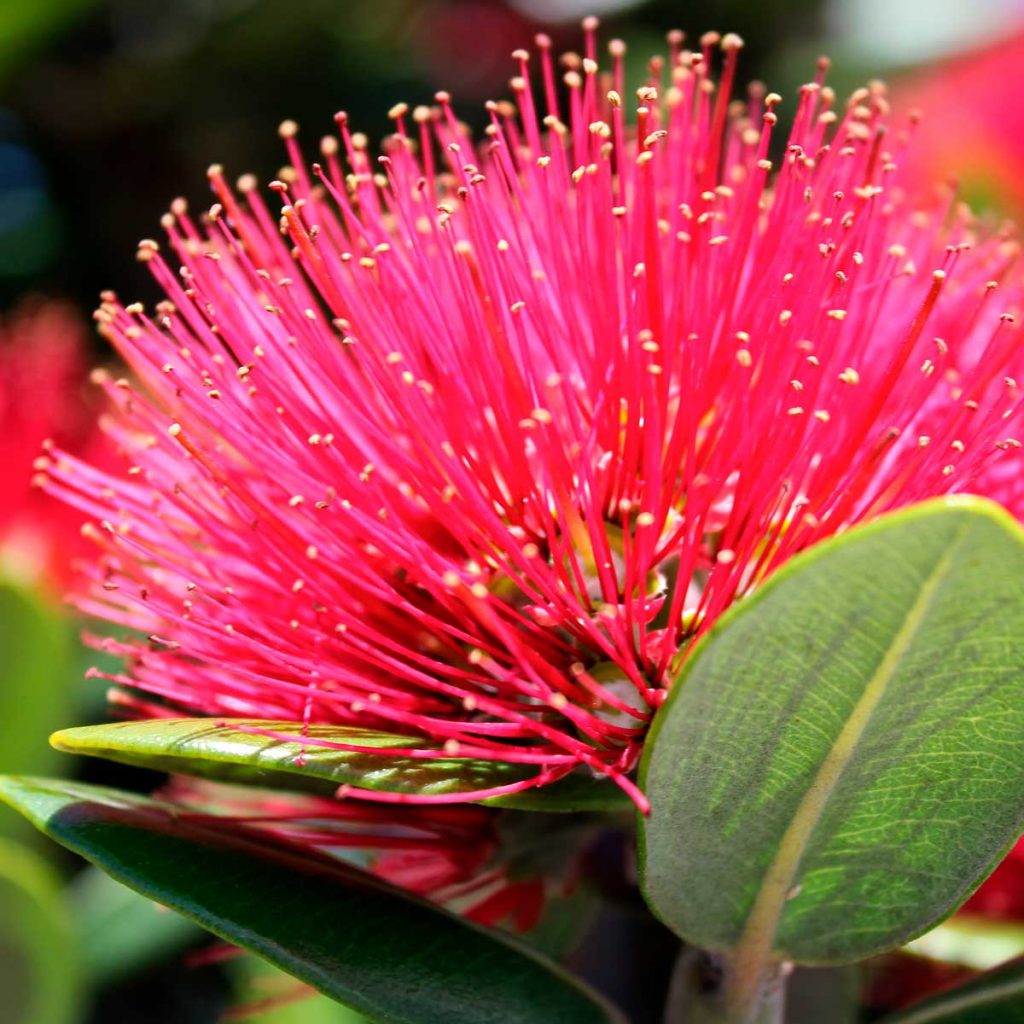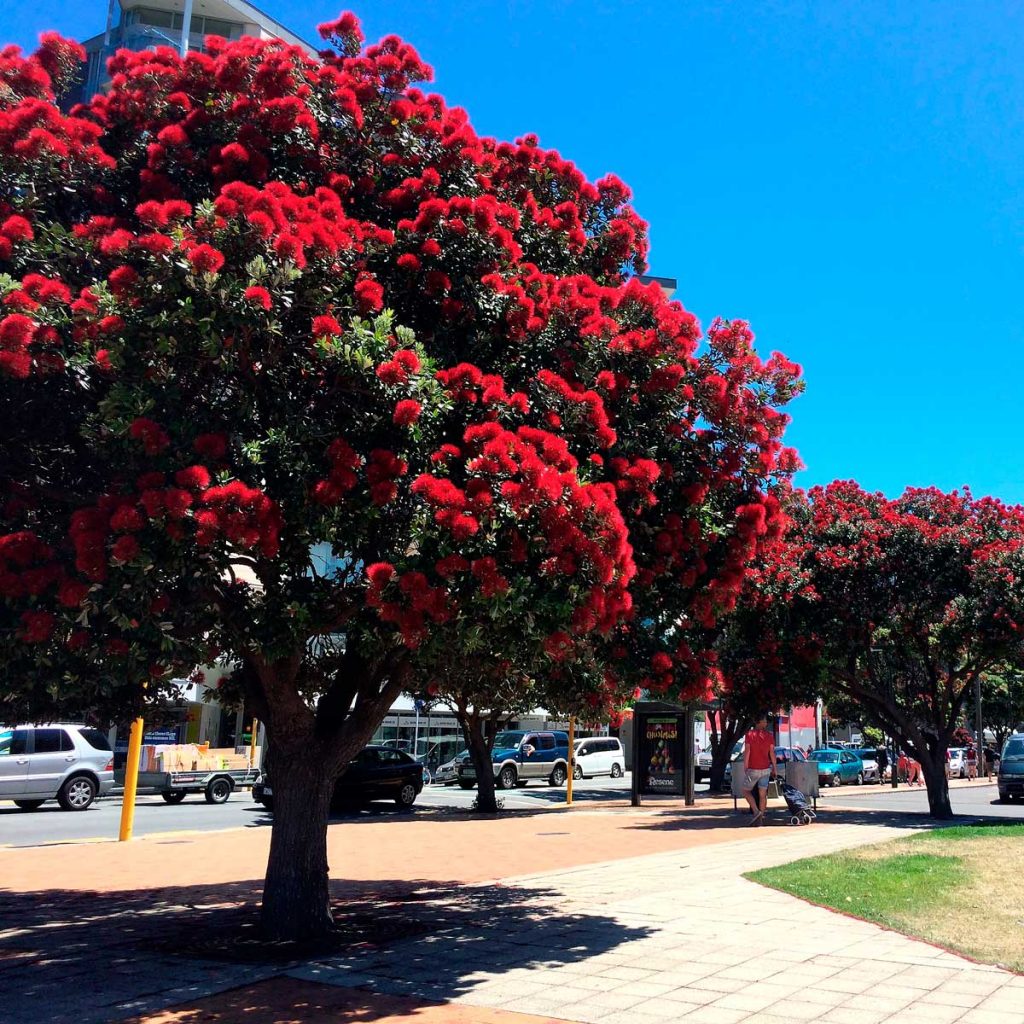
Trees / Pohutukawa
Information for Juniors
Pohutukawa
- Pohutukawa in NZ’s Christmas tree because it flowers around Christmas time
- It is found throughout NZ close to the coast
- It is an evergreen like most native trees
- It is noted for its brilliant display of red, orange or yellow flowers
- Its stamens are like a bottle brush
- It is renowned for its ability to survive and grows almost anywhere mainly in the North Island
- The Maori call it a chiefly tree
- It can grow up to 25m
- They normally have many trunks and spread out in all directions
- The leaves are leathery and covered with dense white hair on the underside
- The leaves are used for healing, sore throats, wounds and diarrhoea
- It flowers from November through January
- The wood is dense, strong and the Maori used it for heavy instruments to bang in poles like a mallet The tree can last nearly 200 years


Information for Junior Secondary
Pohutukawa
- Pohutukawa in NZ’s Christmas tree because it flowers around Christmas time
- It is found throughout NZ close to the coast
- It is an evergreen like most native trees
- It is noted for its brilliant display of red, orange or yellow flowers
- Its stamens are like a bottle brush
- It is renowned for its ability to survive and grows almost anywhere mainly in the North Island
- The Maori call it a chiefly tree
- It can grow up to 25m
- They normally have many trunks and spread out in all directions
- The leaves are leathery and covered with dense white hair on the underside
- The leaves are used for healing, sore throats, wounds and diarrhoea
- It flowers from November through January
- The wood is dense, strong and the Maori used it for heavy instruments to bang in poles like a mallet
- The tree can last nearly 200 years


Information for Seniors
Pohutukawa
- Pohutukawa in NZ’s Christmas tree because it flowers around Christmas time
- It is found throughout NZ close to the coast
- It is an evergreen like most native trees
- It is noted for its brilliant display of red, orange or yellow flowers
- Its stamens are like a bottle brush
- It is renowned for its ability to survive and grows almost anywhere mainly in the North Island
- The Maori call it a chiefly tree
- It can grow up to 25m
- They normally have many trunks and spread out in all directions
- The leaves are leathery and covered with dense white hair on the underside
- The leaves are used for healing, sore throats, wounds and diarrhoea
- It flowers from November through January
- The wood is dense, strong and the Maori used it for heavy instruments to bang in poles like a mallet
- The tree can last nearly 200 years


Activities
Copy TBS
